The OHL has developed partnerships with community and mutual aid organizations, citizen scientist groups, and cultural institutions.
Below are some examples of past and present partnerships.
The OHL has developed partnerships with community and mutual aid organizations, citizen scientist groups, and cultural institutions.
Below are some examples of past and present partnerships.
El OHL ha desarrollado alianzas con organizaciones comunitarias y de ayuda mutua, grupos de científicos ciudadanos e instituciones culturales.
A continuación, se presentan algunos ejemplos de alianzas pasadas y presentes.
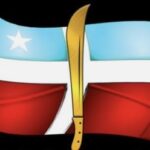 The Centro de Apoyo Mutuo Jíbaro-Bartolo (CAMJI-Bartolo) is a solidarity initiative that impacts the following communities in Lares: Calvache, Mirasol, Vilella, Bartolo, Río Prieto, and Cerro Las Avispas. After Hurricane María, the community of Bartolo rehabilitated a vacant school, which had been closed down as a result of Puerto Rico’s Department of Education’s massive school closures in 2018. The reclaimed school provides shelter for homeless families, serves as a storage and collection center for aid, and offers a community kitchen. The OHL collaborated with Elisa Sánchez, representative of CAMJI, through a grant from the American Council of Learned Societies. The OHL provided training in oral history and recording equipment to support the collection of oral history interviews and photographs with women coffee growers. These oral histories and a series of photos taken during and prior to this collaboration served as the basis for photographer Andrés Octavo, under the direction of CAMJI Bartolo, to design a calendar featuring 12 women coffee growers, each accompanied by an excerpt from their interviews.
The Centro de Apoyo Mutuo Jíbaro-Bartolo (CAMJI-Bartolo) is a solidarity initiative that impacts the following communities in Lares: Calvache, Mirasol, Vilella, Bartolo, Río Prieto, and Cerro Las Avispas. After Hurricane María, the community of Bartolo rehabilitated a vacant school, which had been closed down as a result of Puerto Rico’s Department of Education’s massive school closures in 2018. The reclaimed school provides shelter for homeless families, serves as a storage and collection center for aid, and offers a community kitchen. The OHL collaborated with Elisa Sánchez, representative of CAMJI, through a grant from the American Council of Learned Societies. The OHL provided training in oral history and recording equipment to support the collection of oral history interviews and photographs with women coffee growers. These oral histories and a series of photos taken during and prior to this collaboration served as the basis for photographer Andrés Octavo, under the direction of CAMJI Bartolo, to design a calendar featuring 12 women coffee growers, each accompanied by an excerpt from their interviews.
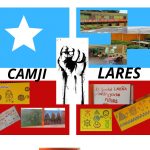 The Centro de Apoyo Mutuo Jíbaro-Lares (CAMJI-Lares) has reclaimed a school that was formerly shut down by the Department of Education. From this space, a group of community activists practice and teach popular agroecology through community service. They promote traditional Jíbaro practices and teach surrounding communities how to claim these ancestral saberes. The OHL first partnered with Pluma Bárbara Moreno, CAMJI’s coordinator, through a grant from the American Council of Learned Societies. The OHL offered oral history training and recording equipment to support the collection of oral history interviews with community elders. These oral histories served as the basis for the co-creation of a printed and digital zine called Nuestras Voces Jíbaras entre lo Agrario y lo Indígena that was designed by Yaritza Sánchez Silva and reflects agrarian and Indigenous knowledge crucial to disaster preparedness and crisis survival.
The Centro de Apoyo Mutuo Jíbaro-Lares (CAMJI-Lares) has reclaimed a school that was formerly shut down by the Department of Education. From this space, a group of community activists practice and teach popular agroecology through community service. They promote traditional Jíbaro practices and teach surrounding communities how to claim these ancestral saberes. The OHL first partnered with Pluma Bárbara Moreno, CAMJI’s coordinator, through a grant from the American Council of Learned Societies. The OHL offered oral history training and recording equipment to support the collection of oral history interviews with community elders. These oral histories served as the basis for the co-creation of a printed and digital zine called Nuestras Voces Jíbaras entre lo Agrario y lo Indígena that was designed by Yaritza Sánchez Silva and reflects agrarian and Indigenous knowledge crucial to disaster preparedness and crisis survival.
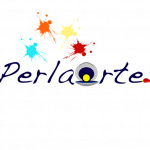 Colectivo PerlArte is a community-owned gallery that is run by Lorel Denisse Cubano Santiago who helped to found it after Hurricane María. Located in La Perla, San Juan, it is a space for creation, memory, and resistance against displacement and inequality. Lorel was first interviewed in 2018 for the mass-listening project Mi María: Puerto Rico after the Hurricane, and her narrative appears in the Voice of Witness book, Mi María: Surviving the Storm, Voices from Puerto Rico. Later, through a grant from the American Council of Learned Societies, Colectivo PerlArte and the OHL partnered to conduct interviews with community members, create a mural that captures key stories and sites in the La Perla neighborhood, and produce the short documentary La Perla en que vivimos….
Colectivo PerlArte is a community-owned gallery that is run by Lorel Denisse Cubano Santiago who helped to found it after Hurricane María. Located in La Perla, San Juan, it is a space for creation, memory, and resistance against displacement and inequality. Lorel was first interviewed in 2018 for the mass-listening project Mi María: Puerto Rico after the Hurricane, and her narrative appears in the Voice of Witness book, Mi María: Surviving the Storm, Voices from Puerto Rico. Later, through a grant from the American Council of Learned Societies, Colectivo PerlArte and the OHL partnered to conduct interviews with community members, create a mural that captures key stories and sites in the La Perla neighborhood, and produce the short documentary La Perla en que vivimos….

Come Colegial is a student-led initiative at the University of Puerto Rico at Mayagüez that fights food insecurity by providing free nonperishable food, hot meals, and fresh produce to students in need. Founded in 2014, its mission is to ensure that no student has to choose between hunger and education, supporting them until they reach food stability. The OHL first partnered with Come Colegial through a multi-campus project impacting UPR-Mayagüez and Río Piedras and Michigan State University titled Archive of Emergency Responses in Puerto Rico (AREPR), which focused on food insecurity in the years since Hurricane María made landfall in the Puerto Rican archipelago. The OHL conducted oral history interviews with Lucy Serrano Gastón, faculty founder of Come Colegial. The narratives became part of UPRM’s digital repository and excerpts of these interviews were used as part of the short documentary, Our Piece of Land. The interviews conducted with Lucy laid the foundation for the creation of an Omeka S subsite on the AREPR website, which showcases 10 years of Come Colegial’s community outreach through the archived materials featured in a TimelineJS.
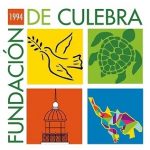 Fundación de Culebra is a nonprofit founded in 1994 that focuses on conserving, protecting, and promoting the arts, environment, and history of the municipality of Culebra. Their mission is rooted in education and social values to foster community self-worth and self-management. The OHL first met with Luz Rivera Cantwell from Fundación de Culebra when she was interviewed for the Mi María: Puerto Rico after the Hurricane project. Further collaborations included the Speaking into Silences: Building Community Archives across the Puerto Rican Archipelago project funded by the American Council of Learned Societies, where Luz, working with Culebra’s music program, Musicá Pa’ Culebra, helped preserve life stories of local musicians. These oral histories inspired the creation of a playlist, which showcases the long tradition of music in Culebra and brings awareness to the challenges Culebra faces, such as the lack of a living wage, a shortage of affordable housing, and gentrification.
Fundación de Culebra is a nonprofit founded in 1994 that focuses on conserving, protecting, and promoting the arts, environment, and history of the municipality of Culebra. Their mission is rooted in education and social values to foster community self-worth and self-management. The OHL first met with Luz Rivera Cantwell from Fundación de Culebra when she was interviewed for the Mi María: Puerto Rico after the Hurricane project. Further collaborations included the Speaking into Silences: Building Community Archives across the Puerto Rican Archipelago project funded by the American Council of Learned Societies, where Luz, working with Culebra’s music program, Musicá Pa’ Culebra, helped preserve life stories of local musicians. These oral histories inspired the creation of a playlist, which showcases the long tradition of music in Culebra and brings awareness to the challenges Culebra faces, such as the lack of a living wage, a shortage of affordable housing, and gentrification.
 El Centro de Apoyo Mutuo Jíbaro-Bartolo (CAMJI-Bartolo) es una iniciativa solidaria que impacta las comunidades Lareñas de Calvache, Mirasol, Vilella, Bartolo, Río Prieto, y Cerro Las Avispas. Después del huracán María, la comunidad de Bartolo rehabilitó una escuela vacía, que había sido cerrada como resultado de los cierres masivos de escuelas del Departamento de Educación de Puerto Rico en el 2018. La escuela recuperada brinda refugio a familias sin hogar, sirve como centro de almacenamiento y recolección de ayuda, y ofrece una cocina comunitaria. El OHL colaboró con Elisa Sánchez, representante del CAMJI-Bartolo, mediante una beca del American Council of Learned Societies. El OHL ofreció capacitación en historia oral y equipo de grabación para apoyar la recopilación de entrevistas de historia oral y fotografías con mujeres cafetaleras. Estas historias orales y una serie de fotos tomadas durante y previo a esta colaboración sirvieron de base para que el fotógrafo Andrés Octavo, bajo la dirección de CAMJI Bartolo, diseñara un calendario que presenta los rostros de 12 mujeres caficultoras junto a un extracto de sus entrevistas.
El Centro de Apoyo Mutuo Jíbaro-Bartolo (CAMJI-Bartolo) es una iniciativa solidaria que impacta las comunidades Lareñas de Calvache, Mirasol, Vilella, Bartolo, Río Prieto, y Cerro Las Avispas. Después del huracán María, la comunidad de Bartolo rehabilitó una escuela vacía, que había sido cerrada como resultado de los cierres masivos de escuelas del Departamento de Educación de Puerto Rico en el 2018. La escuela recuperada brinda refugio a familias sin hogar, sirve como centro de almacenamiento y recolección de ayuda, y ofrece una cocina comunitaria. El OHL colaboró con Elisa Sánchez, representante del CAMJI-Bartolo, mediante una beca del American Council of Learned Societies. El OHL ofreció capacitación en historia oral y equipo de grabación para apoyar la recopilación de entrevistas de historia oral y fotografías con mujeres cafetaleras. Estas historias orales y una serie de fotos tomadas durante y previo a esta colaboración sirvieron de base para que el fotógrafo Andrés Octavo, bajo la dirección de CAMJI Bartolo, diseñara un calendario que presenta los rostros de 12 mujeres caficultoras junto a un extracto de sus entrevistas.
 El Centro de Apoyo Mutuo Jíbaro-Lares (CAMJI-Lares) ha liberado una escuela clausurada por el Departamento de Educación. Desde este espacio, un grupo de activistas comunitarios practica y enseña la agroecología popular a través del servicio comunitario, promueve las prácticas tradicionales Jíbaras, y enseña a las comunidades circundantes cómo reclamar estos saberes ancestrales. El OHL colaboró por primera vez con Pluma Bárbara Moreno, coordinadora del CAMJI-Lares, mediante una beca del American Council of Learned Societies. El OHL ofreció capacitación en historia oral y equipo de grabación para apoyar la recopilación de entrevistas de historia oral con personas mayores de la comunidad. Estas historias orales sirvieron de base para la creación conjunta de una cartilla impresa y digital llamada Nuestras Voces Jíbaras: Entre lo Agrario y lo Indígena que fue diseñada por Yaritza Sánchez Silva y que sirve como muestra del conocimiento agrario e Indígena y su rol en la preparación ante desastres y la supervivencia en tiempos de crisis.
El Centro de Apoyo Mutuo Jíbaro-Lares (CAMJI-Lares) ha liberado una escuela clausurada por el Departamento de Educación. Desde este espacio, un grupo de activistas comunitarios practica y enseña la agroecología popular a través del servicio comunitario, promueve las prácticas tradicionales Jíbaras, y enseña a las comunidades circundantes cómo reclamar estos saberes ancestrales. El OHL colaboró por primera vez con Pluma Bárbara Moreno, coordinadora del CAMJI-Lares, mediante una beca del American Council of Learned Societies. El OHL ofreció capacitación en historia oral y equipo de grabación para apoyar la recopilación de entrevistas de historia oral con personas mayores de la comunidad. Estas historias orales sirvieron de base para la creación conjunta de una cartilla impresa y digital llamada Nuestras Voces Jíbaras: Entre lo Agrario y lo Indígena que fue diseñada por Yaritza Sánchez Silva y que sirve como muestra del conocimiento agrario e Indígena y su rol en la preparación ante desastres y la supervivencia en tiempos de crisis.
 El Colectivo PerlArte es una galería comunitaria dirigida por Lorel Denisse Cubano Santiago, quien contribuyó a su fundación tras el huracán María. Ubicado en La Perla, San Juan, PerlArte es un espacio de creación, memoria, y resistencia contra el desplazamiento y la desigualdad. Lorel fue entrevistada por primera vez en el 2018 para el proyecto de escucha masiva Mi María: Puerto Rico después el huracán, y su testimonio aparece en el libro de Voice of Witness, Mi María: Surviving the Storm, Voices from Puerto Rico. Más adelante, a través de una beca del American Council of Learned Societies, el Colectivo PerlArte y el OHL continuaron colaborando para realizar entrevistas con miembros de la comunidad, crear un mural que capturara historias y lugares clave del vecindario de La Perla, y filmar un documental La Perla en que vivimos….
El Colectivo PerlArte es una galería comunitaria dirigida por Lorel Denisse Cubano Santiago, quien contribuyó a su fundación tras el huracán María. Ubicado en La Perla, San Juan, PerlArte es un espacio de creación, memoria, y resistencia contra el desplazamiento y la desigualdad. Lorel fue entrevistada por primera vez en el 2018 para el proyecto de escucha masiva Mi María: Puerto Rico después el huracán, y su testimonio aparece en el libro de Voice of Witness, Mi María: Surviving the Storm, Voices from Puerto Rico. Más adelante, a través de una beca del American Council of Learned Societies, el Colectivo PerlArte y el OHL continuaron colaborando para realizar entrevistas con miembros de la comunidad, crear un mural que capturara historias y lugares clave del vecindario de La Perla, y filmar un documental La Perla en que vivimos….
 Come Colegial es una iniciativa estudiantil en la Universidad de Puerto Rico en Mayagüez que combate la inseguridad alimentaria proporcionando alimentos no perecederos, comidas calientes, y productos frescos de forma gratuita a estudiantes. Fundada en el 2014, su misión es asegurar que ningún estudiante tenga que elegir entre el hambre y la educación, apoyándolos hasta que logren estabilidad alimentaria. El OHL se asoció por primera vez con Come Colegial a través de un proyecto multiuniversitario que impactó a UPR-Mayagüez, UPR-Río Piedras, y la Michigan State University, titulado Archivo de Respuestas Emergencia en Puerto Rico (AREPR), el cual se enfocó en la inseguridad alimentaria en los años posteriores al paso del huracán María por el archipiélago puertorriqueño. El OHL realizó entrevistas de historia oral con Lucy Serrano Gastón, su profesora fundadora. Las narrativas pasaron a formar parte del repositorio digital de la UPRM, y fragmentos de estas entrevistas fueron utilizados en nuestro documental Nuestro Pedazo de Tierra. Las entrevistas realizadas con Lucy sentaron las bases para la creación de sub-sitio en Omeka S en el sitio web de AREPR, que muestra 10 años de alcance comunitario de Come Colegial a través de los materiales archivados presentados en un TimelineJS.
Come Colegial es una iniciativa estudiantil en la Universidad de Puerto Rico en Mayagüez que combate la inseguridad alimentaria proporcionando alimentos no perecederos, comidas calientes, y productos frescos de forma gratuita a estudiantes. Fundada en el 2014, su misión es asegurar que ningún estudiante tenga que elegir entre el hambre y la educación, apoyándolos hasta que logren estabilidad alimentaria. El OHL se asoció por primera vez con Come Colegial a través de un proyecto multiuniversitario que impactó a UPR-Mayagüez, UPR-Río Piedras, y la Michigan State University, titulado Archivo de Respuestas Emergencia en Puerto Rico (AREPR), el cual se enfocó en la inseguridad alimentaria en los años posteriores al paso del huracán María por el archipiélago puertorriqueño. El OHL realizó entrevistas de historia oral con Lucy Serrano Gastón, su profesora fundadora. Las narrativas pasaron a formar parte del repositorio digital de la UPRM, y fragmentos de estas entrevistas fueron utilizados en nuestro documental Nuestro Pedazo de Tierra. Las entrevistas realizadas con Lucy sentaron las bases para la creación de sub-sitio en Omeka S en el sitio web de AREPR, que muestra 10 años de alcance comunitario de Come Colegial a través de los materiales archivados presentados en un TimelineJS.
 Fundación de Culebra, fundada en 1994, es una organización sin fines de lucro dedicada a conservar, proteger y promover las artes, el medio ambiente, y la historia del municipio de Culebra. Su misión está basada en la educación y los valores sociales para fomentar la autoestima y la autogestión comunitaria. El OHL se reunió inicialmente con Luz Rivera Cantwell de la Fundación de Culebra cuando fue entrevistada para el proyecto Mi María: Puerto Rico después el huracán. Colaboraciones posteriores incluyeron el proyecto Hablando en los Silencios: Construyendo Archivos Comunitarios a lo Largo del Archipiélago Puertorriqueño, financiado por el American Council of Learned Societies, donde Luz, en colaboración con el programa de música de Culebra, Música Pa’ Culebra, ayudó a preservar las historias de vida de músicos locales. Estas historias orales inspiraron la creación de una lista de reproducción que exhibe la larga tradición musical de Culebra y genera conciencia sobre los desafíos que enfrenta la isla municipio, tales como la falta de salarios dignos, la escasez de viviendas asequibles, y la gentrificación.
Fundación de Culebra, fundada en 1994, es una organización sin fines de lucro dedicada a conservar, proteger y promover las artes, el medio ambiente, y la historia del municipio de Culebra. Su misión está basada en la educación y los valores sociales para fomentar la autoestima y la autogestión comunitaria. El OHL se reunió inicialmente con Luz Rivera Cantwell de la Fundación de Culebra cuando fue entrevistada para el proyecto Mi María: Puerto Rico después el huracán. Colaboraciones posteriores incluyeron el proyecto Hablando en los Silencios: Construyendo Archivos Comunitarios a lo Largo del Archipiélago Puertorriqueño, financiado por el American Council of Learned Societies, donde Luz, en colaboración con el programa de música de Culebra, Música Pa’ Culebra, ayudó a preservar las historias de vida de músicos locales. Estas historias orales inspiraron la creación de una lista de reproducción que exhibe la larga tradición musical de Culebra y genera conciencia sobre los desafíos que enfrenta la isla municipio, tales como la falta de salarios dignos, la escasez de viviendas asequibles, y la gentrificación.

The OHL is currently collaborating with the Centro Hemisférico de Cooperación en Investigación y Educación en Ingeniería y Ciencia Aplicada (CoHemis) whose mission is “to promote and facilitate human resource development through hemispheric collaboration between the University of Puerto Rico, Mayagüez Campus and other educational and research institutions.” The OHL is leading an oral history and short documentary film project, generously funded by the Mellon Foundation, to document an energy justice project in the rural community of Rubias in Yauco and interview their community leaders who are collaborating with CoHemis to design, install, and run a solar oasis at their community center.
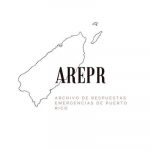 The OHL collaborates with digital humanities teams at UPR Río Piedras and Indiana University Bloomington in the Archivo de Respuestas Emergencias de Puerto Rico. This digital archive using the Omeka S platform is committed to preserving and amplifying curated collections of stories and documents from mutual aid organizations across the Puerto Rican archipelago. Through our work on this data curation project, we disseminate widely information regarding the creative strategies for survival that communities have developed in the face of stratified disasters such as hurricanes, earthquakes, and the global pandemic of COVID-19. This project is generously supported by a Collaborative Grant from the National Endowment for the Humanities and the Presidential Stream of the Mellon Foundation. With this work AREPR has won the 2023 American Studies Association’s Digital Project Prize and the 2022 Michigan State University’s Distinguished Partnership Award for Community Engagement.
The OHL collaborates with digital humanities teams at UPR Río Piedras and Indiana University Bloomington in the Archivo de Respuestas Emergencias de Puerto Rico. This digital archive using the Omeka S platform is committed to preserving and amplifying curated collections of stories and documents from mutual aid organizations across the Puerto Rican archipelago. Through our work on this data curation project, we disseminate widely information regarding the creative strategies for survival that communities have developed in the face of stratified disasters such as hurricanes, earthquakes, and the global pandemic of COVID-19. This project is generously supported by a Collaborative Grant from the National Endowment for the Humanities and the Presidential Stream of the Mellon Foundation. With this work AREPR has won the 2023 American Studies Association’s Digital Project Prize and the 2022 Michigan State University’s Distinguished Partnership Award for Community Engagement.

The OHL is a partner in the translocal climate justice network of partner universities and community organizations led by the Humanities Action Lab (HAL) at Hunter College CUNY. OHL Director, Ricia Anne Chansky, is a Climate Justice Fellow at HAL and has previously served as the Senior Climate Justice Fellow. In 2024, the General Library hosted the HAL exhibition, Climates of Inequality: Stories of Environmental Justice. Check out the UPRM contribution to the exhibition—be sure to scroll down to see both our work on the “Sheltered in Place” project and our food insecurity zine—and watch the HAL documentary that features the UPRM team. The climate justice work at HAL is generously supported by a Humanities Discussions Grant from the National Endowment for the Humanities and a Grant from the Higher Learning Stream of the Mellon Foundation.
 El OHL colabora actualmente con el Centro Hemisférico de Cooperación en Investigación y Educación en Ingeniería y Ciencia Aplicada (CoHemis), cuya misión “es promover y facilitar el desarrollo de recursos humanos mediante la colaboración hemisférica de la Universidad de Puerto Rico, Recinto Universitario de Mayagüez con otras instituciones educativas y de investigación.” El OHL lidera un proyecto de historia oral y cortometraje documental, generosamente financiado por el Mellon Foundation, para documentar un proyecto de justicia energética en la comunidad rural de Rubias en Yauco y entrevistar a los líderes comunitarios que están colaborando con CoHemis para diseñar, instalar, y operar un oasis solar en su centro comunitario.
El OHL colabora actualmente con el Centro Hemisférico de Cooperación en Investigación y Educación en Ingeniería y Ciencia Aplicada (CoHemis), cuya misión “es promover y facilitar el desarrollo de recursos humanos mediante la colaboración hemisférica de la Universidad de Puerto Rico, Recinto Universitario de Mayagüez con otras instituciones educativas y de investigación.” El OHL lidera un proyecto de historia oral y cortometraje documental, generosamente financiado por el Mellon Foundation, para documentar un proyecto de justicia energética en la comunidad rural de Rubias en Yauco y entrevistar a los líderes comunitarios que están colaborando con CoHemis para diseñar, instalar, y operar un oasis solar en su centro comunitario.
 El OHL colabora con equipos de humanidades digitales en la UPR Río Piedras e Indiana University Bloomington en el Archivo de Respuestas Emergencias de Puerto Rico. Este archivo digital que utiliza la plataforma Omeka S está comprometido con la preservación y amplificación de colecciones seleccionadas de historias y documentos de organizaciones de ayuda mutua en todo el archipiélago puertorriqueño. A través de nuestro trabajo en este proyecto de curación de datos, difundimos ampliamente información sobre las estrategias creativas para la supervivencia que las comunidades han desarrollado ante desastres estratificados como huracanes, terremotos, y la pandemia global de COVID-19. Este proyecto cuenta con el generoso apoyo de una Subvención Colaborativa del National Endowment for the Humanities y el Fondo Presidencial del Mellon Foundation. Con este trabajo, AREPR ganó el “American Studies Association’s Digital Project Prize” de 2023 y el “Michigan State University’s Distinguished Partnership Award for Community Engagement” de 2022.
El OHL colabora con equipos de humanidades digitales en la UPR Río Piedras e Indiana University Bloomington en el Archivo de Respuestas Emergencias de Puerto Rico. Este archivo digital que utiliza la plataforma Omeka S está comprometido con la preservación y amplificación de colecciones seleccionadas de historias y documentos de organizaciones de ayuda mutua en todo el archipiélago puertorriqueño. A través de nuestro trabajo en este proyecto de curación de datos, difundimos ampliamente información sobre las estrategias creativas para la supervivencia que las comunidades han desarrollado ante desastres estratificados como huracanes, terremotos, y la pandemia global de COVID-19. Este proyecto cuenta con el generoso apoyo de una Subvención Colaborativa del National Endowment for the Humanities y el Fondo Presidencial del Mellon Foundation. Con este trabajo, AREPR ganó el “American Studies Association’s Digital Project Prize” de 2023 y el “Michigan State University’s Distinguished Partnership Award for Community Engagement” de 2022.

El OHL es socio en la red de justicia climática translocal de universidades asociadas y organizaciones comunitarias dirigida por el Humanities Action Lab (HAL) en Hunter College CUNY. La directora del OHL, Ricia Anne Chansky, es la Climate Justice Fellow en HAL y anteriormente se desempeñó como la Senior Climate Justice Fellow. En 2024, la Biblioteca General albergó la exposición de HAL, Climas de Desigualdad: Historias de Justicia Ambiental. Consulte la contribución de la UPRM a la exposición, y asegúrese de desplazarse hacia abajo para ver tanto nuestro trabajo en el proyecto “Sheltered in Place” como nuestro zine sobre inseguridad alimentaria, y mire el documental de HAL que presenta al equipo de la UPRM. El trabajo de justicia climática en HAL cuenta con el generoso apoyo de una Subvención para Discusiones de Humanidades de la National Endowment for the Humanities y una Subvención del Fondo de Aprendizaje Superior de Mellon Foundation.